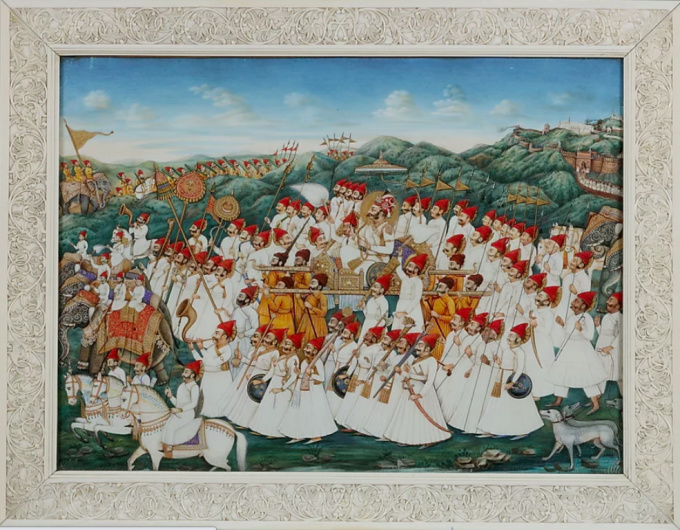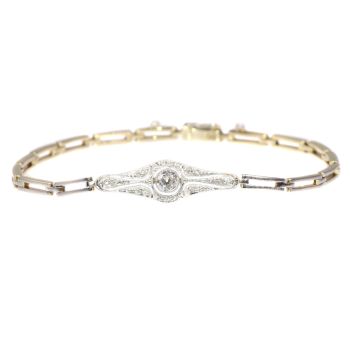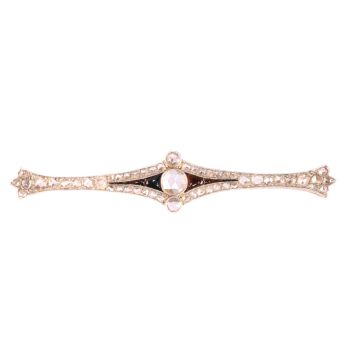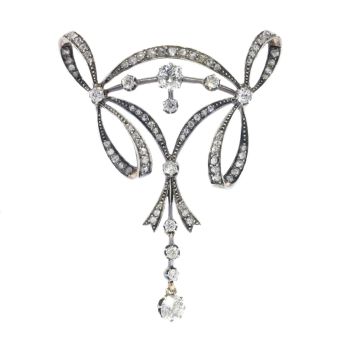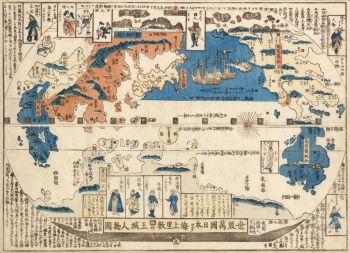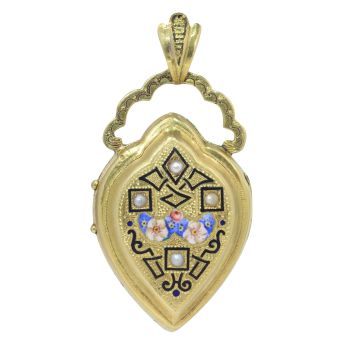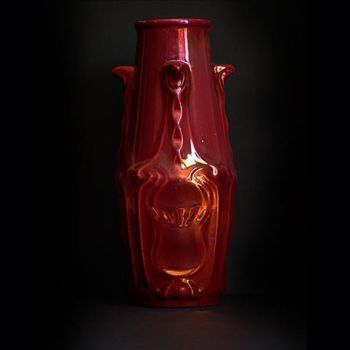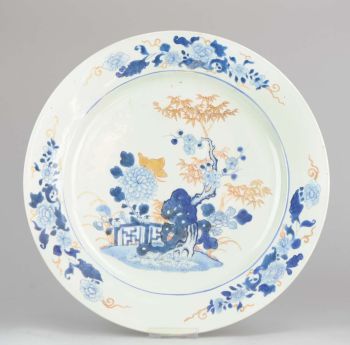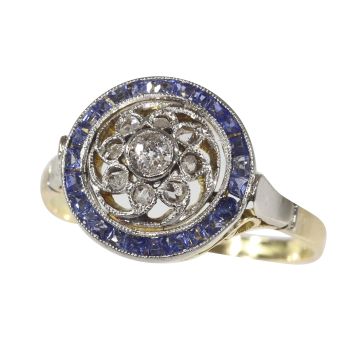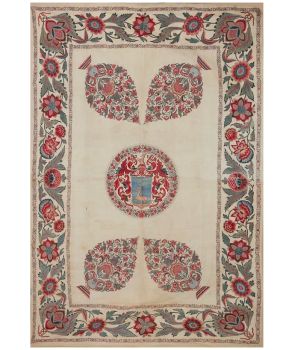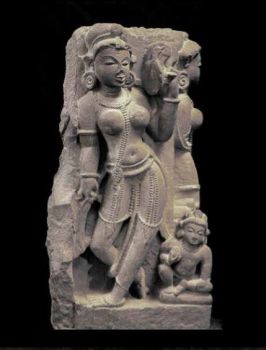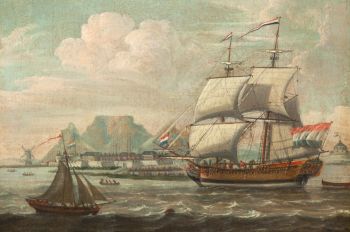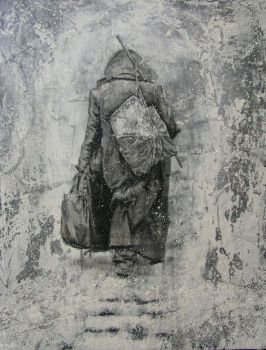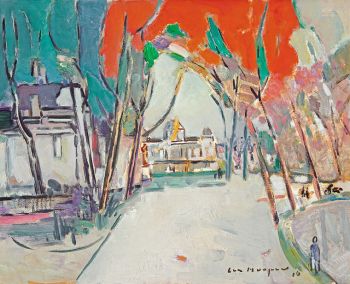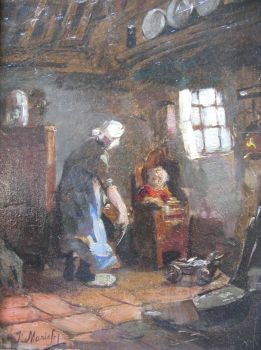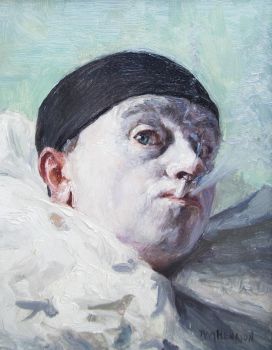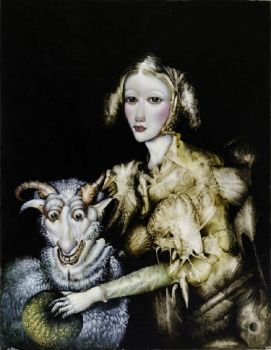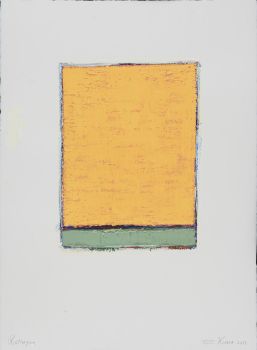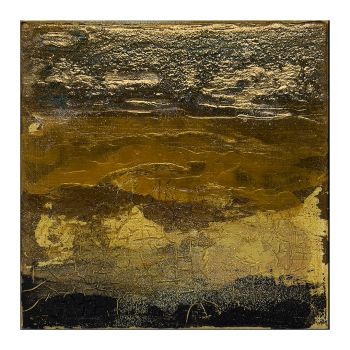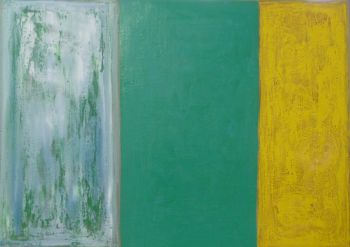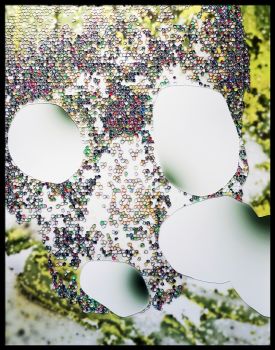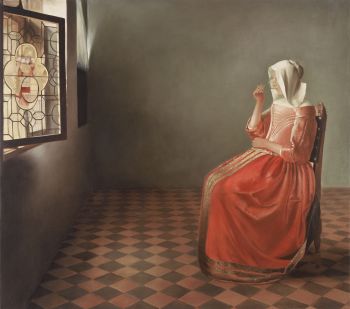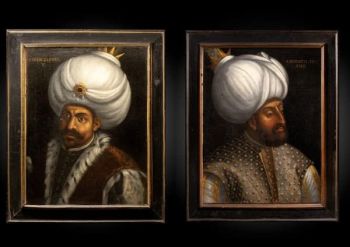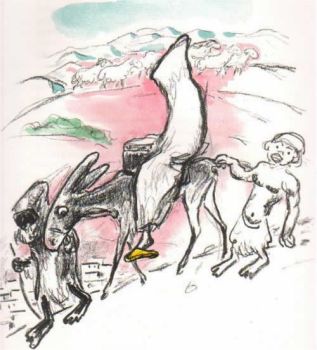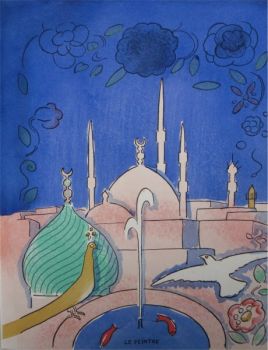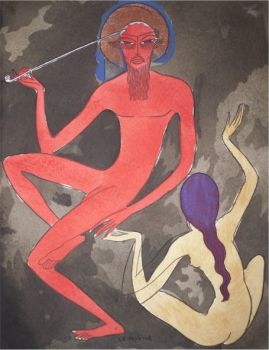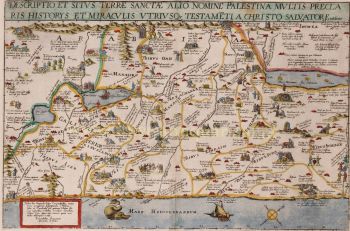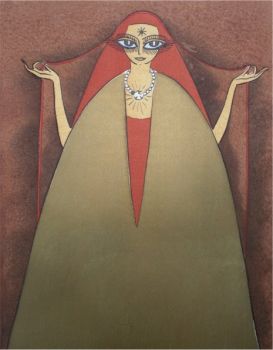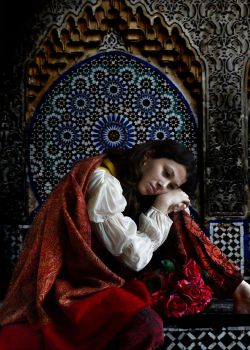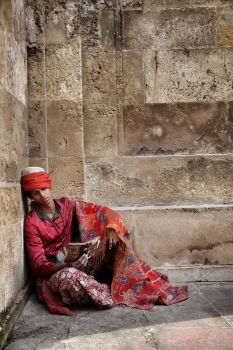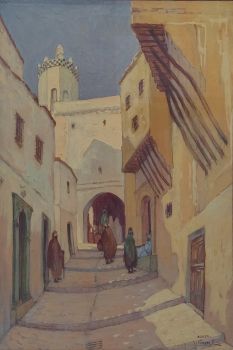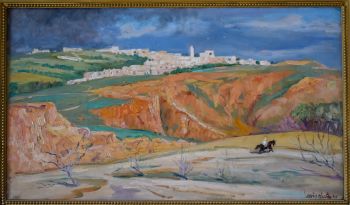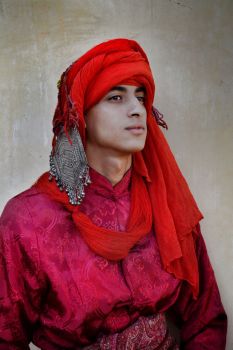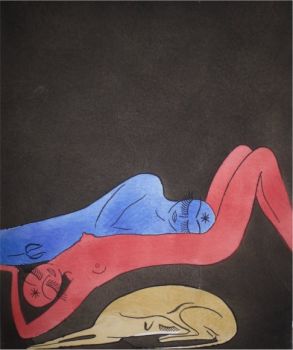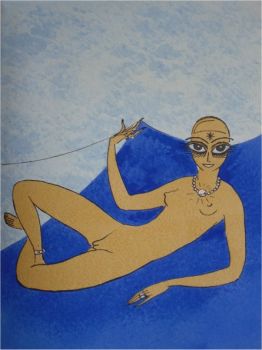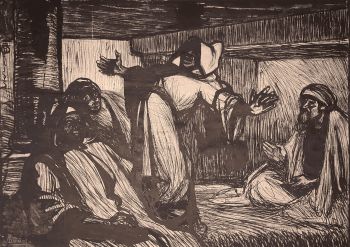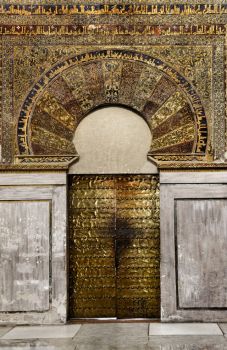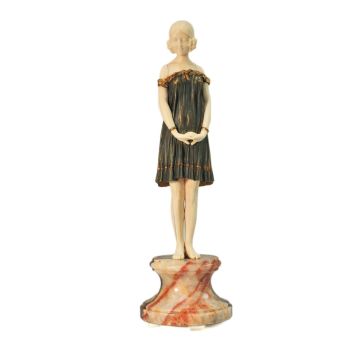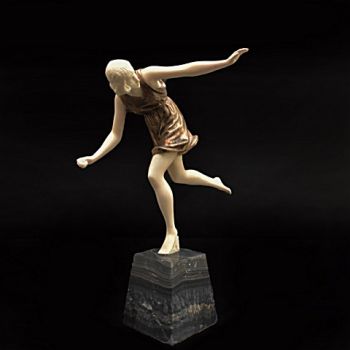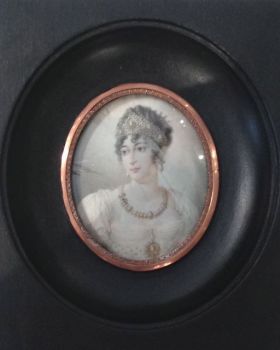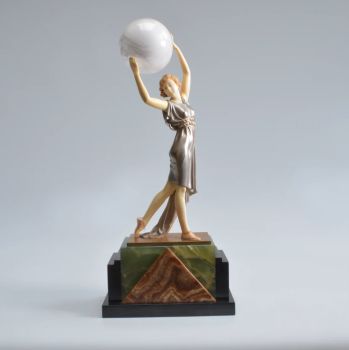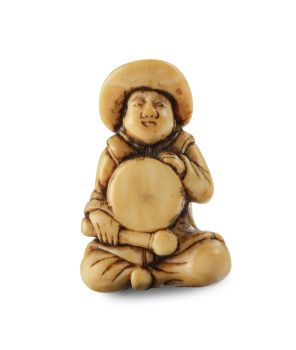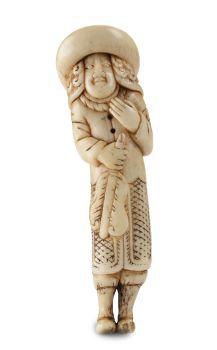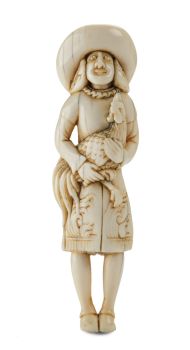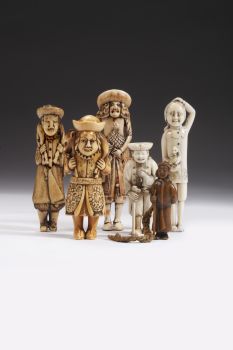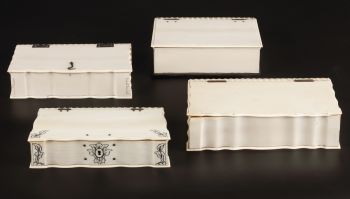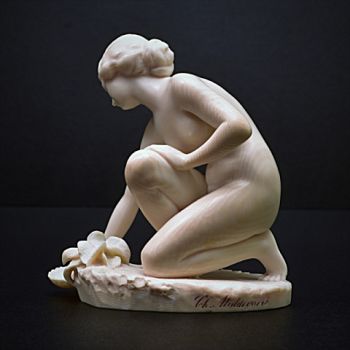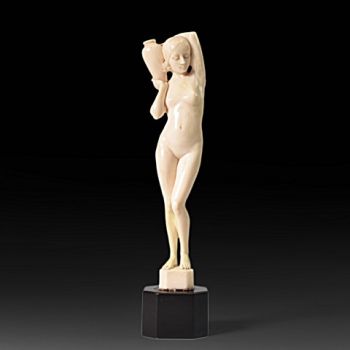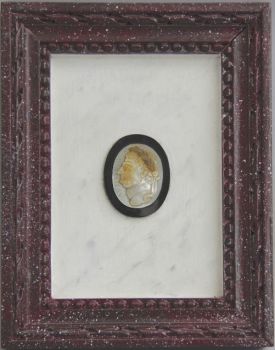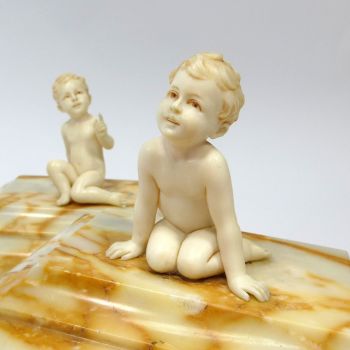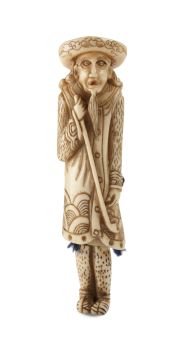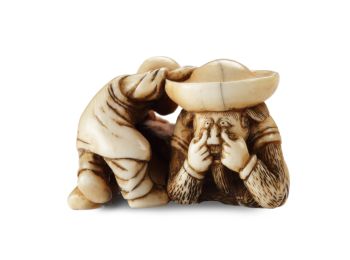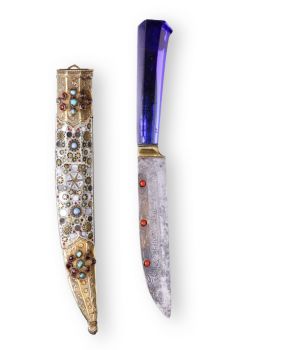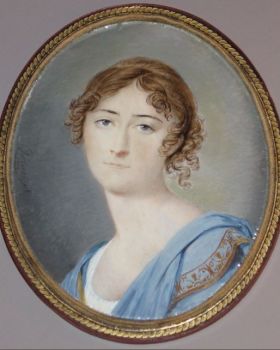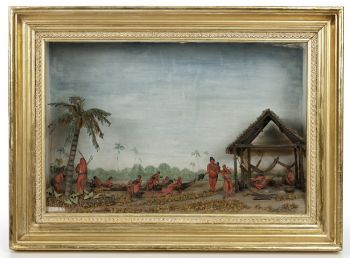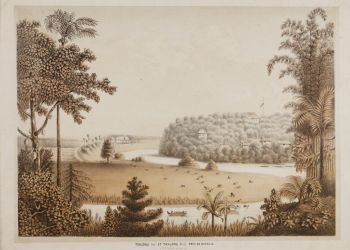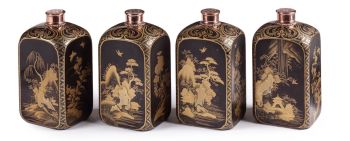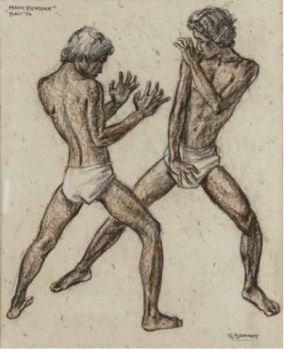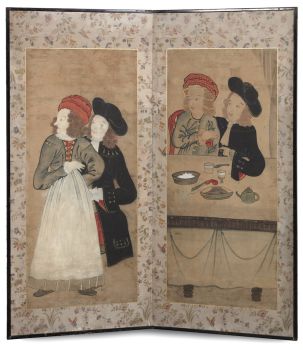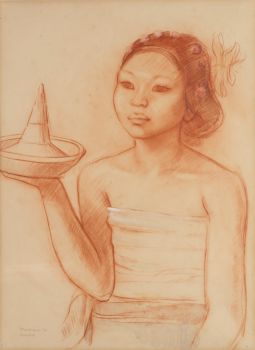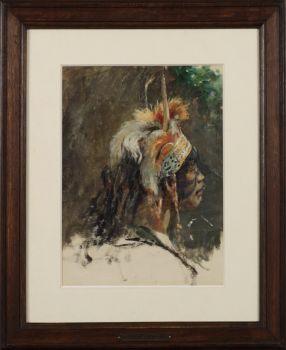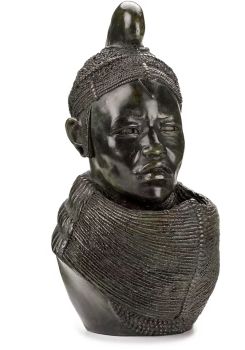GRANDE PEINTURE INDIENNE IMPORTANTE ET RARE `` STYLE D'ENTREPRISE '' SUR IVOIRE REPRÉSENTANT UN DÉFI 1850 - 1900
Artiste Inconnu
OSIvoireAquarelle
Prix sur demande
Zebregs & Röell - Fine Art - Antiques
- Sur l'oeuvre d'artIMPORTANT AND RARE LARGE INDIAN 'COMPANY STYLE' PAINTING ON IVORY DEPICTING A PARADE
North India, late 19th century
Opaque watercolour and gold on ivory, in finely carved ivory frame.
H. 27.6 x W. 37.3 cm (excl. frame)
H. 38.8 x W. 45.4 cm (incl. frame)
Note:
The painting depicts a ruler, perhaps the ruler of Jodhpur, carried on a palaquin amidst an extensive procession of noblemen, musicians and attendants, coming out of a town on a hill top, a cannon on the town wall firing. The frame, also in ivory, is carved in shallow relief with entwined floral motifs. In the 19th century after the British East India Company occupied Delhi in 1803 and the breaking up of Mughal suzerainty, the Company played the dominant political and administrative role in India. Artists once active in the Mughal workshops were out to seek other lucrative employment and the style of Indian painting came more and more under English/European patronage. This style is known as “Company style painting”. Native Indian talents, now employed by the new rulers, adapted themselves to the new style by studying and copying available European models. Company style paintings were more naturalistic and picturesque and ivory (as well as glass and mica) was a popular new medium with European collectors. Following the English tradition of miniature portrait paintings on ivory, Indian painters perfected the technique of painting on ivory. Most paintings on ivory were small portraits or fanciful architecture. Large paintings on ivory the seize of the present one are very rare. - Sur l'artiste
Il peut arriver qu'un artiste ou un créateur soit inconnu.
Certaines œuvres ne doivent pas être déterminées par qui elles sont faites ou elles sont faites par (un groupe d') artisans. Les exemples sont des statues de l'Antiquité, des meubles, des miroirs ou des signatures qui ne sont pas claires ou lisibles, mais aussi certaines œuvres ne sont pas signées du tout.
Vous pouvez également trouver la description suivante :
•"Attribué à …." A leur avis probablement une oeuvre de l'artiste, au moins en partie
•« Atelier de …. ou « Atelier de » À leur avis, une œuvre exécutée dans l'atelier ou l'atelier de l'artiste, éventuellement sous sa direction
•« Cercle de… ». A leur avis une oeuvre de la période de l'artiste témoignant de son influence, étroitement associée à l'artiste mais pas forcément son élève
•« Style de … ». ou "Suiveur de ...." Selon eux, une œuvre exécutée dans le style de l'artiste mais pas nécessairement par un élève ; peut être contemporain ou presque contemporain
•« Manière de… ». A leur avis une oeuvre dans le style de l'artiste mais d'une date plus tardive
•"Après …." A leur avis une copie (quelle qu'en soit la date) d'une oeuvre de l'artiste
•« Signé… », « Daté… ». ou « Inscrit » À leur avis, l'œuvre a été signée/datée/inscrite par l'artiste. L'ajout d'un point d'interrogation indique un élément de doute
• "Avec signature ….", "Avec date ….", "Avec inscription …." ou "Porte signature/date/inscription" à leur avis la signature/date/inscription a été ajoutée par quelqu'un d'autre que l'artiste
Êtes-vous intéressé par l'achat de cette oeuvre?
Artwork details
Related artworks
Artiste Inconnu
A Dutch colonial Indonesian betel box with gold mounts1750 - 1800
Prix sur demandeZebregs & Röell - Fine Art - Antiques
1 - 4 / 12- 1 - 4 / 4
 Sélectionné par
Sélectionné parDanny Bree
1 - 4 / 24- 1 - 4 / 24
Artiste Inconnu
A gem-set ivory sculpture of an Ottoman sultan1700 - 1750
Prix sur demandeZebregs & Röell - Fine Art - Antiques
Artiste Inconnu
UN FILET D'IVOIRE D'UN DUTCHMAN TENANT UN COCKEREL18th century
Prix sur demandeZebregs & Röell - Fine Art - Antiques
Artiste Inconnu
Néerlandais en miniature (Netsuke)1700 - 1900
Prix sur demandeZebregs & Röell - Fine Art - Antiques
Artiste Inconnu
A Dutch colonial Indonesian betel box with gold mounts1750 - 1800
Prix sur demandeZebregs & Röell - Fine Art - Antiques
Artiste Inconnu
UNE COLLECTION DE QUATRE BOÎTES À BIBLE EN IVOIRE SRI LANKAN18th century
Prix sur demandeZebregs & Röell - Fine Art - Antiques
1 - 4 / 24Artiste Inconnu
UNE COLLECTION DE QUATRE BOÎTES À BIBLE EN IVOIRE SRI LANKAN18th century
Prix sur demandeZebregs & Röell - Fine Art - Antiques
1 - 4 / 12

